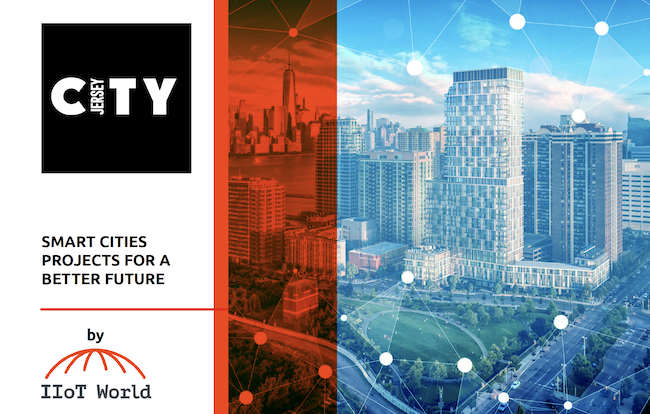Jersey City – redefining SMART based on residents needs
Jersey City has implemented smart city plans and projects aiming to improve the lives of its citizens and created mobility projects to streamline resources while meeting neighborhood-specific needs. Jersey City has strived to integrate smart technology into every facet of its community in order to improve the quality of life for all residents and increase economic development. So far, the city has identified fifteen projects, all of which focus on smart mobility, infrastructure, and technologies.
Jersey City was among the finalists of the 2019 Readiness Challenge at Smart Cities Week, and the collaborative public-private partnerships strategies are aimed at a common goal – to enhance economic growth in the community.
Challenges
Smart cities encapsulate an overwhelming number and variety of domains and IoT application areas that are enhanced with technological advancements. Just as other communities across the world, Jersey City saw a significant challenge in offering efficient services and serving its residents in a timely and effortless manner.
In an interview with IIoT-World, Brian Platt, the City Manager for Jersey City, explains the main challenges he wants to address with available smart technologies.
Brian is also a Chief Operating Officer serving the city government. A smart city, according to his vision, uses data to drive decision making, is both connected and automated, and incorporates machine learning and predictive analytics to continuously improve efficiency and quality of city services.
“One of the biggest opportunities we see with smart city technologies is the efficiency of services through data analysis and automation. The more we as city officials can predict and anticipate needs and can lower costs of services, the less we can focus and spend on these services and the more we can then ultimately focus on new initiatives. For example:
- Being able to know when infrastructure needs repairs based on particular events that often occur before a failure
- Routing street cleaning automatically based on road usage and at different times of day to minimize traffic and parking impacts
- Diverting vehicle traffic on certain routes during certain times of the day to allow for faster emergency responses and to reduce congestion
- Providing targeted services to residents based on usage history of other services”
Brian Platt, City Manager for Jersey City
Specifically, Jersey City faces challenges with infrastructure and its maintenance, city services such as street cleaning, the lack of mobility and traffic congestion, etc.
The challenge that came with implementing smart technology to help address the difficulties mentioned above was the construction of the open data portal. Its primary role was to perform data collection and data-driven decision-making processes for all city departments. Just after this step, the city could focus on smart projects in different areas. This first project offers a transparent and open method to consult the projects launched by the municipality and understand the data.
To find out what are Jersey City’s smart projects, read the city profile here.



